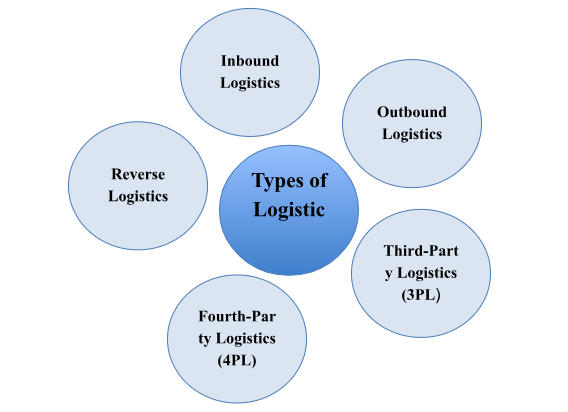Table of Contents
In today’s globalized and interconnected business landscape, logistics management plays a pivotal role in ensuring the efficient movement of goods and services from their source to their final destination. In this article, we will discuss the Logistic Management meaning features importance objectives and types of Logistic management
Logistics Management Overview
The term ‘Logistics’ finds its roots in the French word ‘loger,’ originally denoting the art of war strategies related to the movement and supply of armies. “Logistics involves the skill of efficiently overseeing the movement of raw materials and finished products from their origin to the end-user.” In order to ensure that products are delivered from their point of origin to the correct destination, in suitable condition, at the appropriate time, and at a reasonable cost, it’s essential to understand that “Logistics, also referred to as physical distribution or distribution logistics, is an essential component of the Marketing Process.”
What is Logistics Management?
The Council of Logistics Management offers a comprehensive definition of logistics: “Logistics is the process of planning, implementing, and controlling the efficient, effective flow and storage of goods, services, and related information from the point of origin to the point of consumption for the purpose of conforming to customer requirements.” This definition underscores the multifaceted nature of logistics management, which goes beyond mere transportation to encompass the entire supply chain process.
Logistical management involves the design and administration of systems that control the flow of materials, work-in-process, and finished inventory to align with the strategic goals of a business unit. It revolves around designing and managing systems that enable the effective control of material flow across an entire corporation.
Features of Logistic Management
Major features of logistic management are as follows:
- Efficient facilitation of the movement of various goods, including raw materials, work-in-progress, and finished products.
- Fulfillment of customer expectations regarding product quality and the necessary information.
- Real-time dissemination of information regarding product demand and availability.
- Timely delivery of high-quality products in the required quantities, minimizing excessive safety stock.
- Offering the highest level of customer service while minimizing costs.
- Integration of diverse managerial functions to optimize available resources.
- Effective management of the quantity, movement, and storage of goods.
Importance of Logistics
Logistics management has gained paramount importance in the contemporary business landscape for several reasons:
- Rising Transportation Costs: The steady increase in fuel prices has led to a substantial rise in transportation costs, making it essential for businesses to optimize their logistics operations to minimize expenses.
- Production Efficiency: As production efficiency reaches its peak, businesses must focus on logistics to gain a competitive edge.
- Technology Advancements: The advent of computer technology and increased computer usage has revolutionized logistics, enabling more precise tracking and management of goods.
- Growth of Retail Chains: The growth of large retail chains with sophisticated logistics services has disrupted traditional distribution channels, necessitating robust logistics strategies
- Globalization: As businesses expand internationally, effective logistics management becomes crucial for managing the complexities of global supply chains.
Objectives of Logistics Management:
The objectives of logistics management can be summarized as follows:
- Rapid Response: The ability to meet customer service requirements promptly is a critical objective of logistics management.
- Minimum Variance: Minimizing unexpected disruptions in system performance caused by various factors, such as delays, disruptions in manufacturing, or damaged goods, is essential.
- Minimum Inventory: Efficient logistics management aims to reduce inventory deployment to the lowest level consistent with customer service goals, thus achieving the lowest overall total logistics cost.
- Quality Improvement: Continuous quality improvement, often guided by Total Quality Management (TQM) principles, is an essential aspect of logistics management.
- Life-Cycle Support: Ensuring that products perform as advertised over a specified period and managing reverse logistics when necessary is a vital objective.
Types of Logistics
Logistics management encompasses a wide array of activities and functions, including:

- Inbound Logistics: Inbound logistics focuses on the transport, storage, and delivery of goods entering a business. It involves sourcing and vendor selection, inbound transportation, procurement planning, raw materials warehousing, inventory management, and information systems to support strategic alliances with suppliers and transporters.
- Outbound Logistics: Outbound logistics, on the other hand, deals with the flow of finished products from factory warehouses to customers through a distribution network that includes wholesalers, distributors, retailers, regional warehouses, transporters, and various levels of inventory management.
- Third-Party Logistics (3PL): 3PL providers offer outsourced logistics services, encompassing the management of resources’ movement to the areas where they are needed. Outsourcing logistics management allows transportation firms to focus on logistics while companies concentrate on production. While this approach can lead to cost savings, it may entail a loss of control over certain aspects of logistics.
- Fourth-Party Logistics (4PL): The progression in supply chain outsourcing leads to Fourth-party Logistics. A 4PL provider acts as a supply chain integrator. The 4PL is responsible for assembling and overseeing all the resources, capabilities, and technology within an organization’s supply chain and its network of providers.
- Reverse Logistics: Reverse logistics focuses on operations related to the reuse of products and materials, involving the movement of goods from their typical final destination for the purpose of capturing value or proper disposal.
Conclusion
In conclusion, logistics management is an intricate and indispensable component of modern business operations. Logistics management is the key to unlocking a competitive advantage and ensuring the seamless flow of goods and services in the dynamic global economy.
Download UGC NET Commerce Study Notes PDF
The direct Link to Download UGC NET Commerce Study Notes PDF has been mentioned below. Candidate can download Logistics Management Study Notes PDF which has been mentioned below.
Download Logistics Management Study Notes PDF



 UGC NET Commerce Syllabus 2025 PDF Downl...
UGC NET Commerce Syllabus 2025 PDF Downl...
 UGC NET Teaching Aptitude Questions Answ...
UGC NET Teaching Aptitude Questions Answ...
 UGC NET Philosophy Syllabus 2025 PDF Dow...
UGC NET Philosophy Syllabus 2025 PDF Dow...




